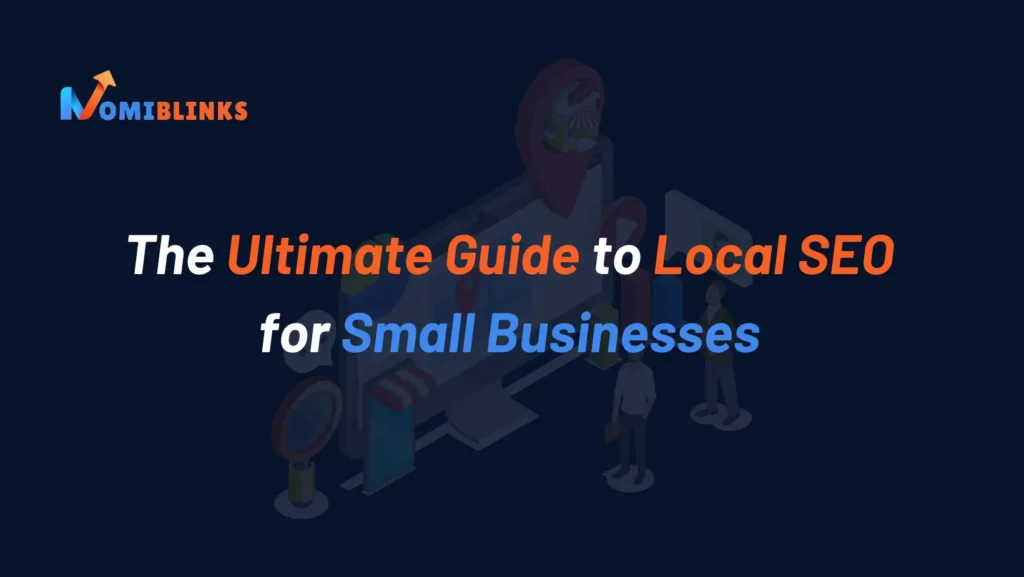In today’s competitive market, small businesses must leverage every advantage to attract local customers. Local SEO (Search Engine Optimization) is a powerful strategy that helps businesses improve their online visibility within a specific geographic area. In this guide, we’ll walk you through the essentials of local SEO and provide actionable tips to help your small business thrive.
What Is Local SEO?
Local SEO focuses on optimizing your online presence to attract more business from relevant local searches. These searches typically include location-based keywords such as “near me,” or the name of a specific city or region. Local SEO is vital for small businesses, as it ensures that your brand appears prominently when potential customers search for your products or services in your area.
Why Is Local SEO Important for Small Businesses?
- Increased Visibility: Local SEO ensures your business appears in search results when potential customers search for services or products you offer.
- Higher Website Traffic: Optimizing for local keywords drives targeted traffic to your website.
- Improved Reputation: Online reviews and local listings enhance your brand’s credibility.
- Increased Foot Traffic: Local SEO boosts visits to your physical location.
Key Components of Local SEO
1. Google Business Profile (GBP)
What It Is: Google Business Profile (formerly Google My Business) is a free tool that helps businesses manage their online presence on Google Maps and search results.
Optimization Tips:
- Claim and verify your profile.
- Provide accurate information (name, address, phone number, hours of operation).
- Add high-quality images.
- Respond to reviews promptly.
2. Local Keywords
What They Are: Keywords that include location-specific terms, such as “best coffee shop in London.”
How to Use Them:
- Include local keywords in titles, meta descriptions, and content.
- Use tools like Google Keyword Planner to identify relevant search terms.
3. Online Reviews
Why They Matter: Positive reviews boost your reputation and improve rankings.
How to Get Them:
- Ask satisfied customers to leave reviews.
- Respond to all reviews professionally, whether positive or negative.
4. Local Citations
What They Are: Mentions of your business on other websites, including directories like Yelp, Yellow Pages, and TripAdvisor.
How to Optimize:
- Ensure your NAP (Name, Address, Phone number) is consistent across all listings.
- Submit your business to local directories.
5. Mobile Optimization
Why It’s Important: Most local searches happen on mobile devices.
Best Practices:
- Ensure your website is mobile-friendly.
- Use responsive design for seamless user experience.
- Optimize page speed.
6. Local Content Creation
What It Involves: Writing content that resonates with your local audience.
Ideas for Content:
- Blog posts about local events or news.
- Guides or tips related to your industry within the local area.
- Success stories from local customers.
7. Backlink Building
Why It Matters: High-quality backlinks from local websites boost your site’s authority.
How to Build Them:
- Collaborate with local influencers.
- Sponsor local events.
- Reach out to local bloggers for guest posts.

Common Local SEO Mistakes to Avoid
- Ignoring Google Business Profile optimization.
- Inconsistent NAP information across platforms.
- Neglecting online reviews.
- Not optimizing for mobile devices.
- Overlooking local keyword research.
Tools to Help with Local SEO
- Google Business Profile Manager: Manage your Google listing.
- BrightLocal: For local SEO audits and performance tracking.
- Moz Local: To manage and distribute your business information.
- SEMrush: For local keyword research.
- Ahrefs: To monitor backlinks and competitor strategies.
Conclusion
Local SEO is essential for small businesses aiming to compete in their local markets. By optimizing your Google Business Profile, focusing on local keywords, encouraging reviews, and creating locally relevant content, you can significantly enhance your visibility and attract more customers. Start implementing these strategies today and watch your small business grow!
For expert help with your Local SEO strategy, reach out to NomiBlink SEO. Let’s help your business dominate local search results!
